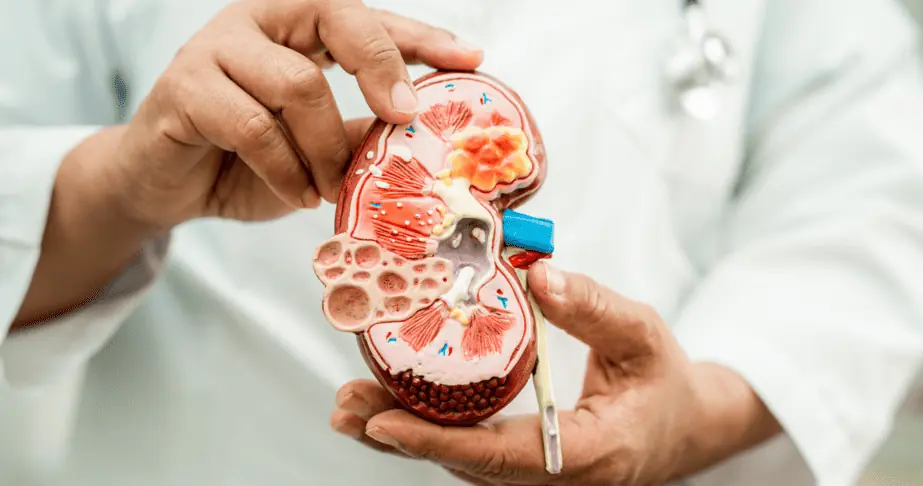

wordpress-seo domain was triggered too early. This is usually an indicator for some code in the plugin or theme running too early. Translations should be loaded at the init action or later. Please see Debugging in WordPress for more information. (This message was added in version 6.7.0.) in /home/sehatnagar.com/public_html/wp-includes/functions.php on line 6114
Kidney stents, also known as ureteral stents, are small, flexible tubes placed in the ureter to treat or prevent various urinary tract issues. While they serve a critical medical purpose, sleeping with a kidney stent can be challenging. Discomfort, pain, and disrupted sleep are common issues individuals with kidney stents face. In this article, we will explore effective strategies and tips to help you sleep comfortably with a kidney stent, ensuring a better night’s rest during your recovery period.

Before delving into the tips for better sleep, let’s understand what kidney stents are and why they are used. Kidney stents are typically thin, hollow tubes made of medical-grade plastic or silicone. They are inserted into the ureter, connecting the kidney to the bladder, to treat various urinary issues, such as kidney stones, obstructions, or post-surgery complications.
While kidney stents are vital for medical reasons, they can cause discomfort and interfere with your ability to sleep well. Below are several strategies to overcome these challenges and achieve a more comfortable night’s sleep.
Finding the right sleeping position is crucial. Many people find it more comfortable to sleep on their back with a kidney stent, as this reduces pressure on the stent and minimizes discomfort. Placing a pillow under your knees can help support your lower back and alleviate pressure.
Experiment with different pillows to find the best support for your body. A body pillow or wedge pillow can be particularly helpful in maintaining a comfortable sleeping position and reducing discomfort around the stent site.
Adequate hydration is essential to prevent irritation and discomfort around the stent. However, avoid excessive fluid intake close to bedtime to minimize nighttime bathroom trips.
Consult with your healthcare provider about pain management medication. They may prescribe pain relievers that can help you sleep more comfortably during the stent placement and recovery period.
Certain foods can irritate the bladder and worsen discomfort. Avoid spicy foods, caffeine, and acidic beverages, especially in the evening.
Incorporate relaxation techniques like deep breathing or meditation into your bedtime routine. Reducing stress can help improve your overall sleep quality.
Maintain a comfortable room temperature and use breathable bedding to prevent overheating, which can disrupt your sleep.
Gentle, low-impact exercises during the day can help reduce muscle tension and improve overall comfort.
Empty your bladder before going to bed to minimize the chances of waking up in the middle of the night due to the need to urinate.
If you experience severe pain, bleeding, or other concerning symptoms related to your kidney stent, consult your healthcare provider promptly. They can provide guidance or make necessary adjustments to your treatment plan.
Sleeping with your upper body slightly elevated can reduce pressure on the kidney and stent. You can achieve this by propping yourself up with additional pillows or using an adjustable bed if available.
Choose loose-fitting pajamas or nightwear to prevent any unnecessary pressure on the stent area. Tight clothing can exacerbate discomfort and make it harder to find a comfortable sleeping position.
Try to maintain a consistent sleep schedule. Going to bed and waking up at the same times every day can help regulate your body’s internal clock and improve sleep quality.
If you find it challenging to fall asleep due to discomfort, consider using distraction techniques. Listening to calming music, audiobooks, or engaging in a relaxing activity like reading can help take your mind off any discomfort.
Keep the stent area clean and dry to prevent irritation. This includes gentle cleansing with mild soap and water, especially before bedtime.
Inform your family or housemates about your condition so they can provide support as needed. They can assist you with daily activities and be understanding of your need for rest.
Maintain a pain diary to track your discomfort levels, pain triggers, and the effectiveness of pain medication. This information can be helpful when discussing your symptoms with your healthcare provider.
Consult with your healthcare provider before using sleep aids or over-the-counter medications. They can recommend safe options that won’t interfere with your recovery or interact negatively with any prescribed medications.
Some individuals find relief from discomfort by practicing gentle breathing exercises, such as diaphragmatic breathing or the 4-7-8 technique, before sleep.
Invest in a comfortable and supportive mattress that suits your preferred sleeping position. A mattress with memory foam or adjustable firmness can provide extra comfort.
Both alcohol and tobacco can irritate the urinary tract and worsen discomfort. It’s best to avoid these substances, especially in the evening.
If your sleep disturbances persist, consider consulting with a sleep specialist. They can assess your sleep patterns and recommend personalized solutions for better sleep.
Sleeping with a kidney stent can be challenging, but with the right strategies and adjustments, you can significantly improve your sleep quality during the recovery period. Remember that each person’s experience is unique, so it may take some trial and error to find the best combination of tips that work for you. Prioritize your comfort and well-being, and don’t hesitate to seek guidance from your healthcare provider if you encounter any complications or persistent discomfort. By following these tips, you can rest easier and support your body’s healing process while living with a kidney stent.